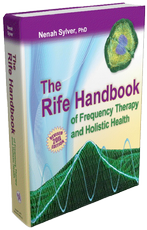Hormonal Responses
Hormonal Responses
Associated with
Women’s Reproductive System
The sexism of doctors is well known--and unfortunately still exists even in this day and age. (Note the fierce attempts of many to try to make abortion illegal again.) It is finally becoming more widely acknowledged within the mainstream medical profession that many doctors take advantage of women’s conditioned deference to authority to persuade them to undergo a lot of expensive procedures when they are unnecessary: Caesarians, hysterectomies, episiotomies, and the removal of the entire breast and accompanying lymph glands for a small, local tumor. As one male doctor reported, his male professors in medical school repeatedly stated that no woman’s ovaries and uterus are good enough to leave in and no man’s prostate is bad enough to take out.
Women’s hormones regulate much more than reproductive functions. Our ability to bear children requires care beyond the obvious attention to pregnancy and childbirth. The female hormone system is very complex, and in some ways fragile.
Specific Related Health Condition
Diabetes. Diabetes is a disorder of too much glucose (sugar) circulating in the blood, too often and for too long a time. Over one-third of adult-onset diabetes cases in women occur either during pregnancy, after an abortion, or soon after childbirth. This is because the woman’s body is working for two people: She is eating and processing food for herself and the baby, conducting waste removal round the clock, and placing extra stress on her glandular system (see the entry, "Blood Sugar Disorders").
Restorative Strategies: Sometimes diet and meticulous attention to nutrition can completely regulate the condition, without the inclusion of drugs. See "Balancing Blood Sugar Levels," "Dietary Support," and "Cleansing."
Hypoglycemia. Pregnancy can also cause hypoglycemia, a condition whereby the pancreas is overactive and sometimes there is not enough glucose circulating in the blood to feed the hungry body (see the entry, "Blood Sugar Disorders"). Hypoglycemia causes psychological as well as physiological problems.
Restorative Strategies: Except in unusual cases, even Western medicine recognizes that diet and good nutrition are the only solutions (see "Dietary Support," "Balancing Blood Sugar Levels," and "Cleansing").
Postpartum Depression. It is not uncommon for women to feel "let down" or even outright suicidal after a baby arrives. This can relate to a lack of feeling nurtured, after expending so much energy for so many months nurturing another. However, there are also many biochemical changes in the body that contribute to this condition. It is not "all in one’s head." The postpartum depression that many women suffer is due to a radical drop in blood sugar, also known as hypoglycemia, which can cause numerous emotional and psychological symptoms (see the entry, "Blood Sugar Disorders"). Many of the women in the news who have murdered their infants and very young children were probably suffering from a biochemical imbalance in the brain that developed after the baby's birth.
Restorative Strategies: Uninterrupted sleep, massage, fun, psychotherapy. At this time, diet and good nutrition play a crucial role (see "Dietary Support," "Balancing Blood Sugar Levels," and "Cleansing").
Premenstrual Syndrome (PMS). Some women feel moody and depressed, sometimes up to two weeks before their period. This can be accompanied by sore and swollen breasts, fluid retention, and generalized aches and pains. The PMS depression that many women suffer is due to a drop in blood sugar, also known as hypoglycemia (see the entry, "Blood Sugar Disorders").
Restorative Strategies: Consult a naturopath or some other practitioner versed in nutrition, as calcium, magnesium and other nutrient intakes may have to be increased. Also see "Balancing Blood Sugar Levels" and "Dietary Support."
For much more detailed information
on what has been discussed here,
including a wide variety of other health-related topics,
see The Rife Handbook of Frequency Therapy
by this author.

Now available as a Hardcover
and in ALL formats!
as a printed/bound hardcover
as a Windows ![]() eBook
eBook
as a Mac eBook
eBook
for Tablets, iPads and Kindle 
for Android 




